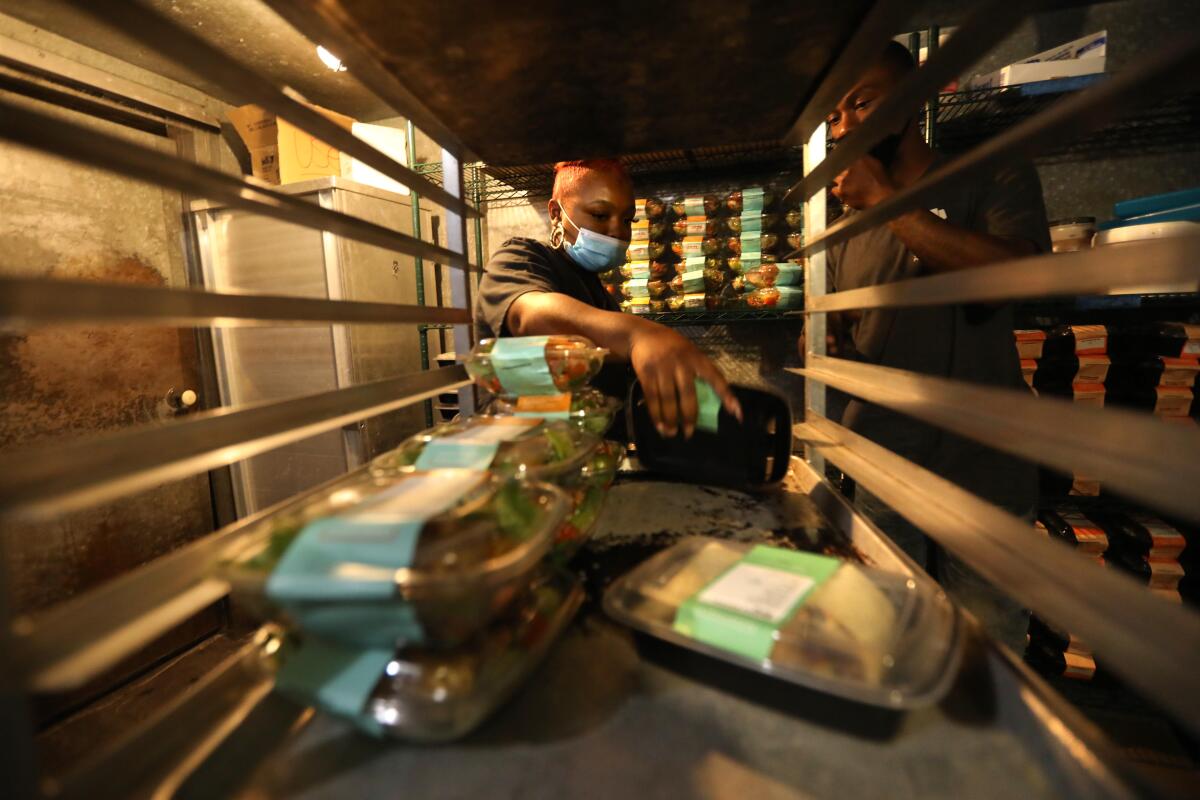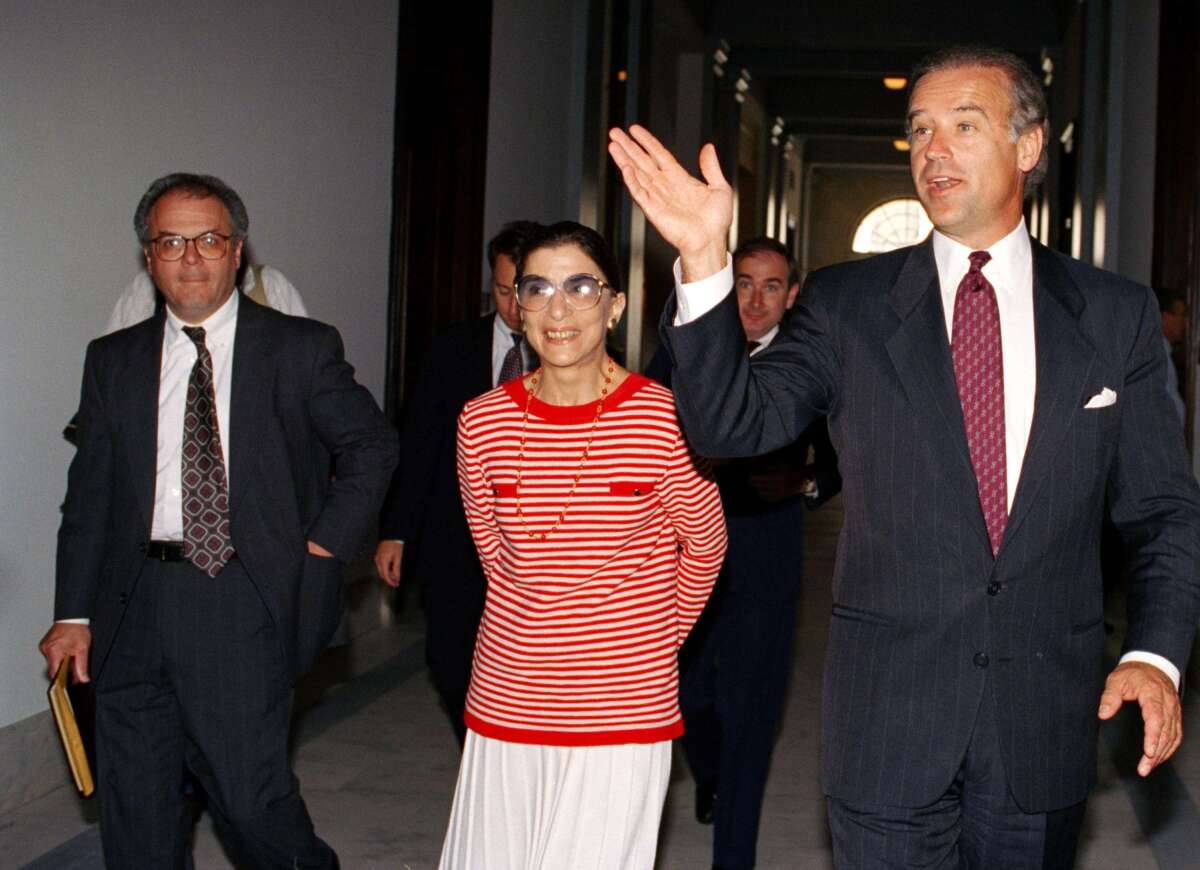Newsletter: Phasing out L.A.’s Project Roomkey

- Share via
Good morning, and welcome to the Essential California newsletter. It’s Wednesday, Sept. 23, and I’m writing from Los Angeles.
Sign up for Essential California
The most important California stories and recommendations in your inbox every morning.
You may occasionally receive promotional content from the Los Angeles Times.
L.A. County’s Project Roomkey — an ambitious program to house vulnerable homeless Angelenos in motels and hotels during the COVID-19 pandemic — is beginning to wind down after falling well short of its goal.
On Tuesday, Heidi Marston, the executive director of the Los Angeles Homeless Services Authority, said the project will shed several hundred beds monthly until it closes down early next year. As my colleagues Doug Smith and Ben Oreskes report, the project peaked at just over 4,300 guests — about 30% of its goal of providing temporary housing for all of the 15,000 unhoused people in LAHSA’s records who were 65 or older or had chronic health conditions such as heart disease or respiratory illness.
[Read the story: “Program to house homeless people in hotels is ending after falling short of goal” in the Los Angeles Times]
Marston told my colleagues that the program is being squeezed by uncertain funding from the Federal Emergency Management Agency, which pays about 75% of its cost, raising the possibility of a sudden cutoff that would force the county to abruptly shut down hotels.
[From this April: “L.A. races to save 15,000 homeless people from coronavirus — one hotel room at a time” from the Los Angeles Times]
I spoke to Oreskes, who covers homelessness for The Times, about the news and the challenges faced by the program. Here’s our conversation, condensed and lightly edited for clarity.
Was Tuesday’s announcement a surprise?
No. For the better part of the last month, we had been hearing that this would be coming. Project Roomkey was never going to be a permanent fix to the ills that Los Angeles was facing, if only just because they had not built up a big enough stock of hotel rooms to house the people that they had said needed to get off the streets.
And I say “they had said needed to get off the streets” because they had never planned to try to put everyone in a hotel. They had identified a population of people who were particularly vulnerable to COVID-19. That was about 15,000. They never actually got close to that.
Why was it so difficult for the county to secure hotel and motel space for the program?
Doug Smith and I heard from various different people about why that was such a challenge, and there were several reasons. The county had wanted to only get hotels that had more than 100 beds; that was a condition they set out about halfway through the pandemic. The thinking behind that was they wanted the economics of scale, because no matter how many homeless people are [housed in a specific location], you have to have a certain number of staff at all these facilities; there are nurses, outreach workers and security. So there’s a lot of expense that goes into sort of outfitting these hotels to service homeless clients. And so they were really looking for hotels of a certain size.
Hotels were also leery of joining the programs, as my colleagues Emily Alpert Reyes and David Zahniser reported. Specifically, hotels in downtown L.A. — hotels that had received subsidies from the city when they were constructed. There were also questions about liability insurance. It was a sort of program that had never been done before, so there was a lot of uncertainty around it. Another challenge they had was getting enough capacity with respect to outreach workers and nurses and things like that. Scaling that up was also a challenge. Also, they had a very ambitious goal. And in a very short amount of time, they just couldn’t meet it.
What do you think the program’s legacy will look like?
I think it’s worth taking a step back and recognizing the accomplishment for what it was: They got 4,000 people into hotels very quickly, which is something I don’t think we would have expected L.A. government of being capable of doing. It wasn’t close to the goal they set, but it was still an achievement.
So I think the legacy is twofold. It’s scaling up something that didn’t exist, doing it in a very short period of time and maybe avoiding a larger outbreak than what has occurred. And also, it should be a moment for us to take stock of how large this problem is, that they actually couldn’t help as many people as they wanted to — in the sense that they said there were 15,000 people who were vulnerable to this virus, who were over 65 and medically vulnerable, and they couldn’t get enough beds to help all those people. We should take a step back and think about how many people that really is — that’s a huge number of people, and not even half of the county’s entire homeless population.
And now, here’s what’s happening across California:
Stop all the clocks, cut off the telephone: COVID-19 deaths in the U.S. surpassed 200,000 on Tuesday. The virus now has claimed as many American lives as the country’s last five wars combined. The death toll is roughly equivalent to that of Pearl Harbor, 83 times over, or the Sept. 11 terrorist attacks, 67 times over.
The nation’s elderly have borne the brunt of the pandemic, but the disease has taken its toll in every age group, with Black people and Latinos suffering disproportionately. Even more loss is ahead, as outbreaks of the disease flare in little-touched parts of the country, and authorities brace for a rising caseload with the onset of autumn.
“I think it’s a shame,” President Trump said Tuesday when asked about the virus’ death toll, which surpasses that of any other country. During that same conversation, the president motioned for a reporter to take off her mask before asking him a question. Los Angeles Times
State officials took the unusual step Tuesday of granting temporary endangered species status to the western Joshua tree but will allow 15 solar energy firms to raze Joshua trees that stand in the way of their shovel-ready projects. The California Fish and Game Commission’s action reflects a difficult reality: Climate change represents a clear threat to both public health in California and to the long-term sustainability of the western Joshua tree. Los Angeles Times
Note: Some of the sites we link to may limit the number of stories you can access without subscribing.
L.A. STORIES
Is L.A. about to see a coronavirus surge tied to Labor Day weekend? Officials are concerned, but the numbers are inconclusive so far. Los Angeles Times
The Bobcat fire has burned 112,000 acres and at least 29 structures and is only 17% contained: At least 29 structures have been destroyed by the fire in northeastern Los Angeles County, and the number could reach 85, officials said Tuesday. Los Angeles Times
The Beirut explosion reinforced longtime fears surrounding a butane facility in San Pedro. The San Pedro site handles the largest amount of butane of any facility in California. Los Angeles Times
Hollywood filmmaker Paul Schrader seeks an LSD-bearing “spiritual guide” to escape the pandemic. The 74-year-old took to Facebook saying he was ready to go on an acid trip as the coronavirus continues. “Is it safe at my age? Where can I safely access it?” he asked. Fellow filmmaker Oliver Stone was among those to respond to the Facebook post, informing Schrader that, unfortunately, all the psychiatrists and “shaman types” who Stone had done acid with were now “all basically retired or dead.” The Hollywood Reporter
The Dodgers clinched their eighth straight National League West title with a 7-2 win over the Oakland Athletics. Los Angeles Times
Support our journalism
POLITICS AND GOVERNMENT
In a sweeping bipartisan vote that takes a government shutdown off the table, the House passed a temporary government-wide funding bill Tuesday night, shortly after President Trump prevailed in a behind-the-scenes fight over his farm bailout. Los Angeles Times
Supreme Court confirmations are a political minefield. Few know that better than Joe Biden. Los Angeles Times

Santa Clara County has officially declared Juneteenth a paid holiday for county workers. The Board of Supervisors vote was unanimous. Mercury News
CRIME AND COURTS
Vanessa Bryant sued the Los Angeles County Sheriff’s Department over deputies sharing “unauthorized” photos of the scene of the helicopter crash that killed her husband, Kobe Bryant, their daughter and seven others. The lawsuit alleges “no fewer than 8 sheriff’s deputies at the crash site pulled out their personal cell phones and snapped photos of the dead children, parents and coaches ... for their own personal gratification.” Los Angeles Times
HEALTH AND THE ENVIRONMENT
Nine California condors died in the Dolan fire, but three chicks survived. The fast-moving fire ripped through the Big Sur condor sanctuary on Aug. 21. Fresno Bee
CALIFORNIA CULTURE
Nail salons can reopen indoors across California under the latest state health guidelines, announced Tuesday. But L.A. County has yet to set timing for allowing nail salons to reopen. Los Angeles Times
The University of California allowed “inappropriate factors” to influence admission decisions, with four campuses admitting 64 applicants over a six-year span based on criteria such as family donations or their relationships to campus staff, according to a state audit released Tuesday. Los Angeles Times
Domestic partnerships have surged in California after implementation of a law that allows more opposite-sex couples to file. CapRadio
How a Napa Valley indie bookstore has survived the pandemic, wildfires and a whopping rent increase. “Luckily, Napans are community-supporting angels, and once they found out we were potentially in trouble, they stepped up to help support us, and that’s why we’re still here,” the owner said. Napa Valley Register
A poem to start your Wednesday: “The War in the Air” by Howard Nemerov. Poetry Foundation
Free online games
Get our free daily crossword puzzle, sudoku, word search and arcade games in our new game center at latimes.com/games.
CALIFORNIA ALMANAC
Los Angeles: sunny, 82. San Diego: sunny, 80. San Francisco: sunny, 73. San Jose: partly sunny, 80. Fresno: sunny, 91. Sacramento: sunny, 87. More weather is here.
AND FINALLY
Today’s California memory comes from Craig Jack:
It was 1979, and I was fresh out of UCI. Colleagues from my first job decided to go see “Apocalypse Now” at the Cinerama Dome in Hollywood, one of only three cinemas in the U.S. playing it in 70mm Dolby. It was a very warm August afternoon, and the skies of L.A. were a greenish-brown haze, creating an eerie feeling that was perfect for the prelude of seeing this epic film. Forty-one years later, that evening has made an imprint on my memory of how the adventure of going to L.A. to the movies turned into more of an immersive event, where the hot weather and skies outside the Cinerama seemed to be tuned to the movie inside.
If you have a memory or story about the Golden State, share it with us. (Please keep your story to 100 words.)
Please let us know what we can do to make this newsletter more useful to you. Send comments, complaints, ideas and unrelated book recommendations to Julia Wick. Follow her on Twitter @Sherlyholmes.
Sign up for Essential California
The most important California stories and recommendations in your inbox every morning.
You may occasionally receive promotional content from the Los Angeles Times.




